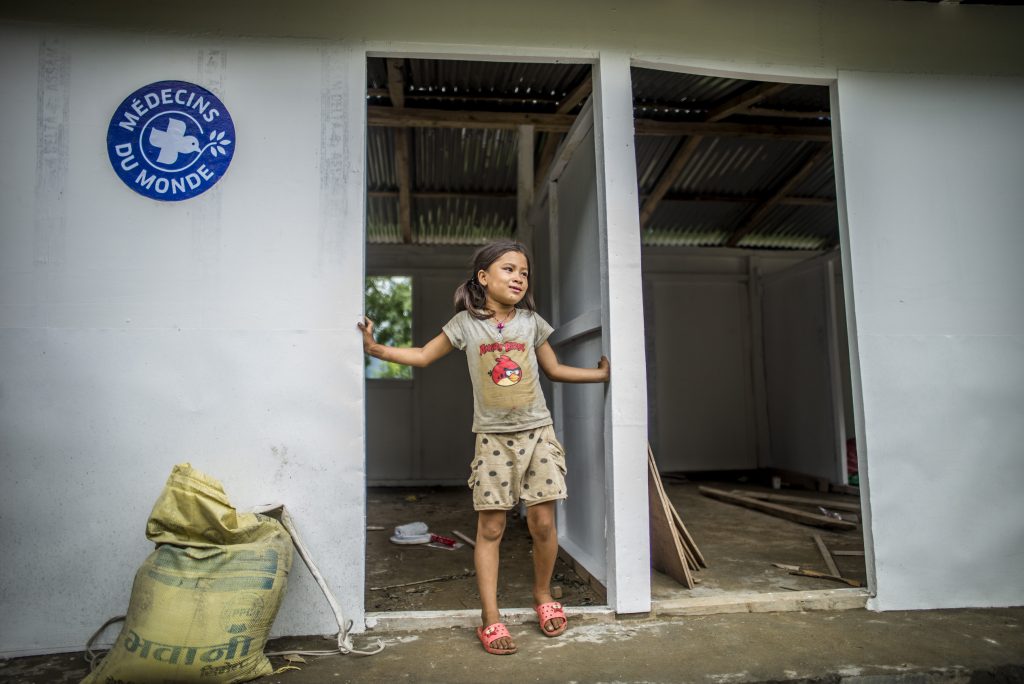Two years after Nepal’s earthquake, mental health issues persist
Published 30th August 2017
In 2015, Nepal was hit by its worst earthquake in over a century. Over 8,500 people died and half a million homes were destroyed.
Doctors of the World was one of the first aid agencies on hand to help. And, two years after the disaster, we’re still working there to help rebuild communities shattered by the earthquake.
This month we’ve compiled a report that looks at our work so far in Sindhupalchok, one of the worst-hit districts, and sets out the future work we plan to do.
When the earthquake hit in April 2015, we provided emergency medical assistance. Over 50 people were dispatched to the region, along with 15 tonnes of essential supplies and medicines. In the following days and weeks, we provided emergency care and helped battle outbreaks of typhoid and shigella.
Once the emergency phase was over, our teams got to work rebuilding Sindhupalchok’s healthcare infrastructure – 61 out of 79 health facilities had been destroyed and another 14 badly damaged. We have worked with local communities to set up new health facilities, provide community healthcare, and rebuild wells to provide clean water.

However, even though two years have now passed since the earthquake, many of Sindhupalchok’s families are still struggling with its psychological impacts. Residents say mental health issues and drinking are on the rise, partly as many people are still unable to rebuild their houses and start anew.
“Two years after the earthquake, people are still struggling with reconstruction of houses…the other main challenges are economic breakdown and psychosocial issues. Alcohol consumption has also increased in the community,” says Chitra Kumari Shrestha, one of the community leaders we’ve worked with.
Mental health support is just one reason why we will keep working in Sindhupalchok for at least another year. We will continue holding sessions where we teach women’s co-operatives how to run micro-loan projects, build health facilities and offer counselling.
Even before the earthquake, there was no real mental health support in Sindhupalchok. There was some limited care for psychotic patients, but no counselling or a referral system that enabled people to get the help they needed. One recent study found that 90% of people with a mental illness in Nepal have no access to treatment.
At the Kalika health post in Sindhupalchok, we recently helped an elderly woman who’d been shunned by her neighbours because she was displaying symptoms of schizophrenia. We arranged for her to travel to Nepal’s capital Kathmandu with her adult son for diagnosis and treatment.
This is just one example of the work that we continue to do in Nepal, long after the earthquake has dropped out of the headlines.
Much of our post-earthquake work in Nepal has been made possible by a grant from the Big Lottery Fund. Please donate whatever you can today to help us treat people affected by natural disasters, conflict, poverty, and discrimination around the world.
